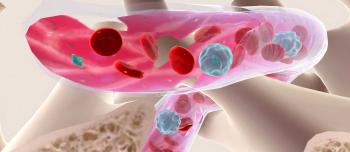Novo Nordisk recently announced further findings from the Hemophilia Experiences, Results, and Opportunities (HERO) study. The study, which centered on responses from 515 adult patients living with hemophilia in eight countries, showed that bleed frequency and treatment regimen choice affected the use of healthcare resources and comprehensive care services among adults living with hemophilia. These findings were reported during an oral presentation at the XXIV Congress of the International Society on Thrombosis and Haemostasis in Amsterdam, the Netherlands, June 29-July 4, 2013.
Results of the HERO study also showed that hemophilia patients who adhere to a prophylaxis treatment regimen are likely to visit a comprehensive hemophilia treatment center (HTC) more often than those who treat on-demand. Further, individuals on prophylaxis reported more frequent interactions with hemophilia nurses and, to a lesser extent, social workers, in management of their disease than compared to patients treating on-demand. Regardless of their treatment regimen, those with more frequent bleeding were less likely to engage in higher-risk physical activities but had a similar number of HTC visits per year.
“This is the first scientific survey of this type and scale to illuminate psychosocial aspects of life with hemophilia,” said Eddie Williams, Corporate Vice President, Biopharmaceuticals. “The HERO initiative underscores Novo Nordisk’s commitment to the hemophilia community, and we look forward to sharing new data as they become available.”
With 1,200 patients in 10 countries, HERO is the largest ever multinational comprehensive study of patients with hemophilia. Topics that it has addressed include employment, relationships, treatment and management of the disorder, and quality of life.
Source: Novo Nordisk news release dated July 31, 2013





